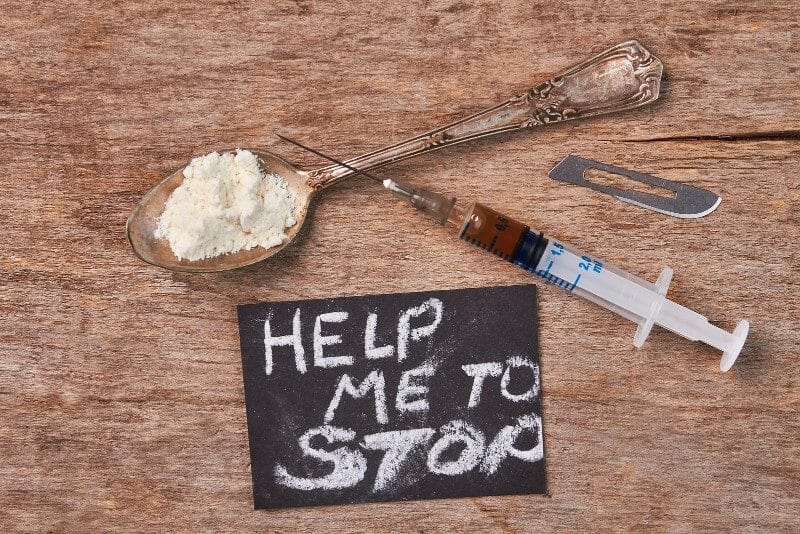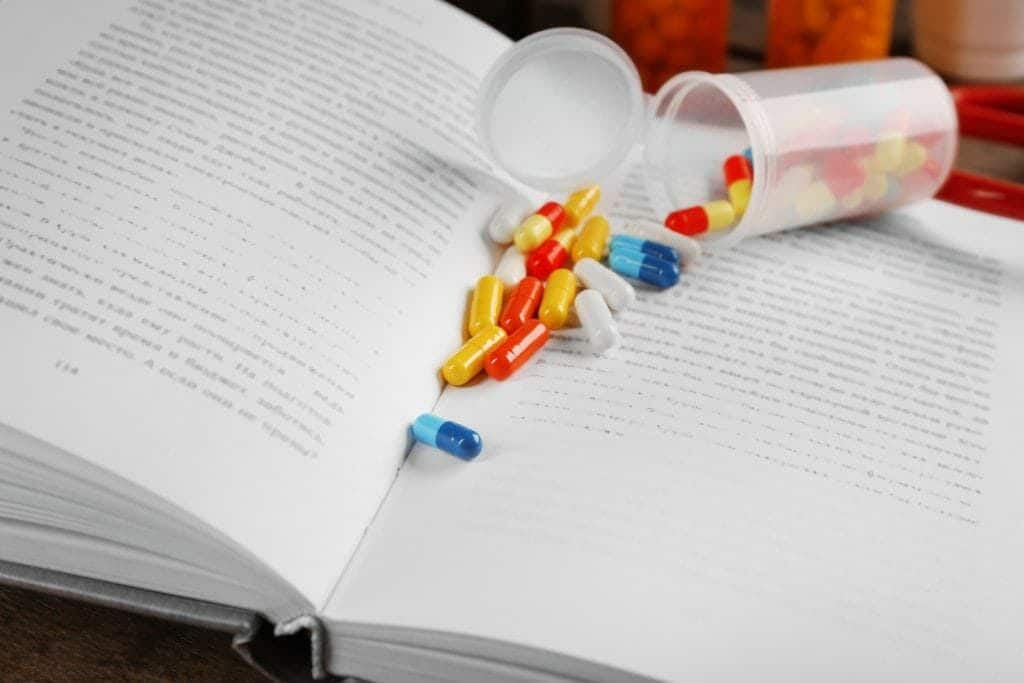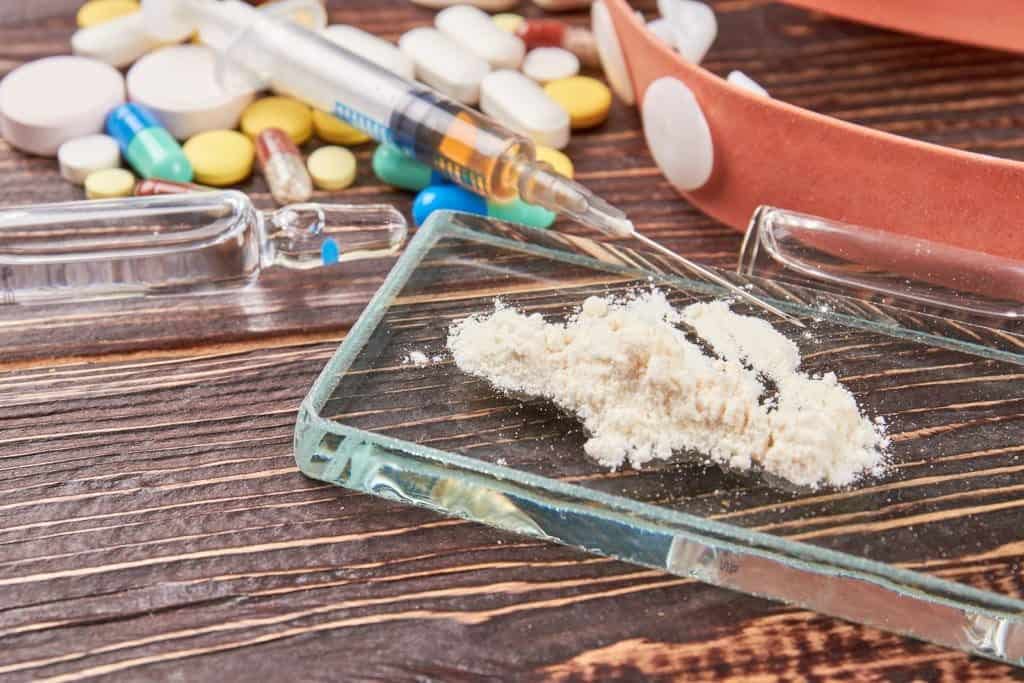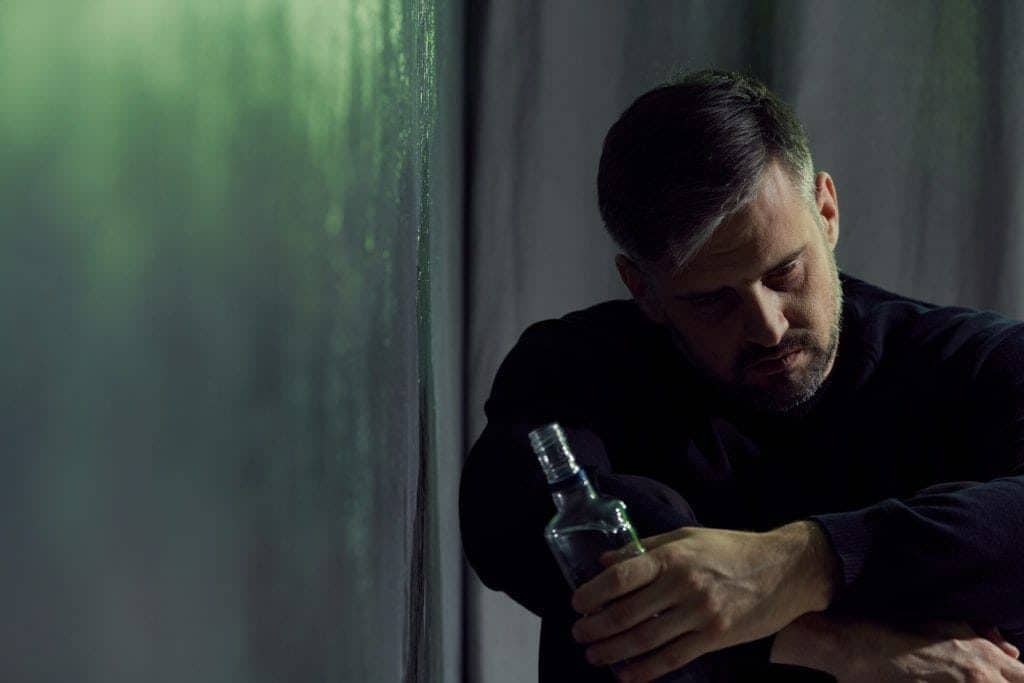Addiction is a powerful disease. And it doesn’t take long for it to consume your life. The only way to overcome addiction is to seek help. Feeling overwhelmed at the thought of it? You’re not alone. Choosing the right rehab center is the first step. That’s where we come in.
Located in California, our Palmdale luxury residential alcohol rehab programs can show you the way to wellness. We offer a continuum of care and a variety of programs so that you can easily find one that fits your individual needs.
Not sure if rehab is right for you? Learn more about problem drinking and alcoholism.
Successful Alcohol Rehab Programs
Behind every successful rehab program is a qualified team. Our alcohol and drug rehab staff is dedicated to you as an individual. The team is made up of licensed clinical psychologists, family therapists, a medical staff and other industry professionals fully invested in your journey to life-long sobriety.
We understand that addiction is complex but treatable, and we’ll be there with you from beginning to end. Your team is specially trained and will work with you and your family to create a customized treatment plan designed for your specific needs. From intake to recovery, the addiction counselors at our Palmdale, California facilities will compassionately walk you through each step to a new life free from the restraints of addiction.
Continuum of Care for Alcohol Addiction
COC integrates evidence-based, state-of-the-art clinical methodologies such as motivational interviewing, EMDR, CBT, DBT, psychodrama, sociometry and other modern therapies into our 12 step-centered framework and philosophy.
There’s no one-size-fits-all solution when it comes to rehab programs. Every individual’s addiction is a little different, and their treatment should be too. We offer a continuum of care to address your unique needs.
- Addiction detox: Drug addiction detox and alcohol addiction detox are necessary steps to the recovery process. Our qualified, experienced and compassionate treatment team is here to ensure you move through your program safely, with the least amount of physical discomfort. These dedicated professionals care about you, want to see you succeed and will be there with you through your entire program.
- Residential treatment: Our residential treatment center offers you a comfortable home where you can escape the stress of everyday life and focus on getting healthy (inside and out). We offer 30-day, 60-day, 90-day and one year residential rehabilitation programs at Cycles of Change, Palmdale, CA.
- Outpatient programs: Our partial hospitalization program is a long-term outpatient program that provides you with the opportunity to begin adjusting to life outside of the treatment center. You’ll go home each night and return each day to receive the full support of our counselors and the benefits of our recovery programs.
- Sober living program: Perhaps you have a healthy new outlook on life but aren’t yet ready to return home. Even with relapse tools on hand, temptation in the early days of sobriety can remain strong. Cycles of Change offers a sober living home for individuals who find themselves in this situation. It’s a way for those who have completed rehab to transition into everyday life through structure and support in a comfortable setting.
Alcohol Addiction Recovery Toolkit
We’ll provide you with the tools you need to overcome your alcohol addiction in a safe and secure environment. It’s our job to help you stay on track, reach your goals and make the positive lifestyle changes you desire.
- Nutritional and medical management (including medication management)
- Rehab counseling
- Interactive family programs
- Assessment of medical and psychiatric requirements
- 24/7 on-site medical help and supervision
- Interpersonal relationship development
- Addiction education (how to prevent relapse)
- After care programs and counseling
Even after you’ve completed your rehab, you’ll be provided with a good support group, regular fellowship meetings and wellness resources to promote healthy habits so you can maintain a sober life.
Meet Margi
“Cycles of Change was my third rehab after a life long struggle with alcohol dependence. There I found a staff that was caring and attentive. The program was structured to include all aspects of recovery, not only my addiction but my spirit and body. I learned more here about the disease and about myself than I had anywhere else. I am going on three years of being clean and sober and my son is also an alumni with almost two years clean. If you are tired of being tired, if you are ready for a sober life I highly recommend Cycles of Change, they saved both my son’s and my life.”
Hear more from our alumni!
Stress-Free Admissions
Is today the day you regain control of your life? It only takes one phone call to begin the process of recovery. We work closely with insurers and can verify your benefits quickly, paving the way for you to promptly receive the help you need. Let our team become your team. Call us today: (661) 630-4176
Unlike physically addictive drugs like alcohol and heroin, cocaine is psychologically addictive. It’s an incredibly powerful stimulant, and the more you use cocaine, the stronger and faster the addiction becomes.
If you’ve decided that you’re ready to regain control of your life and overcome your cocaine addiction, you’re probably going to need some help. That’s why we’re here.
Cycles of Change Recovery Services is California’s premier cocaine addiction treatment center, equipped with the staff and tools needed to help you overcome your cocaine addiction. Located in Palmdale, our individualized treatment programs are designed to help you gain the knowledge, courage and determination needed to live a happy and productive life. Cocaine addiction recovery is not easy, but at Cycles of Change you can recover in comfort and leave our cocaine addiction program stronger than ever before.
Do I Really Have A Cocaine Addiction?
The first step toward recovery is being able to recognize the signs of addiction. Cocaine rehab may be necessary for those showing the following symptoms:
- Dilated pupils
- Nosebleeds
- Increase in energy
- Restlessness and hyperactivity
- Irritability
- Sleeping for long periods of time
- Muscle twitches and tremors
- Anxiety
- Paranoia
- Increase in blood pressure, heart rate and body temperature
If you want to read more about cocaine addiction, click here.
The Dangers of Cocaine Addiction
Using cocaine can drastically affect a person’s health and well-being. Long-term cocaine use causes severe changes to an individual’s brain chemistry, drastically effecting their mental state. It alters how a person behaves and feels, leading to erratic or violent behavior, depression and paranoia. A user can also develop severe mental disorders such as psychosis, dementia and delirium.
Many cardiovascular problems can arise from cocaine abuse as well. Cocaine acts as a stimulant and can lead to a heart attack, as well as irregular beating of the heart. Cell death in the muscles of the heart can occur, as well as an infection of the inner linings of the heart valves.
Cocaine impairs an individual’s judgement and decision-making, which can lead to them engaging in risky sexual behavior and sharing needles with others. This increases a user’s chances of contracting HIV, hepatitis c and other infectious diseases.
Other possible complications from cocaine use include stroke, damage to the kidneys and Parkinson’s disease.
Choosing the Right Cocaine Addiction Extended Care Program
The only way to overcome addiction is to seek help. And, finding the right cocaine addiction treatment center is key. When making your decision, keep the following in mind:
- Behind every successful rehab program is a qualified team. Our rehab staff is dedicated to you as an individual. The team is made up of licensed clinical psychologists, family therapists, a medical staff and other industry professionals fully invested in your journey to life-long sobriety.
- There’s no one-size-fits-all solution when it comes to rehab programs. Every individual’s addiction is a little different, and their treatment should be too. We offer a continuum of care to address your unique needs.
- We’ll provide you with the tools you need to overcome your addiction in a safe and secure environment. It’s our job to help you stay on track, reach your goals and make the positive lifestyle changes you desire.
- We know that continued support is key to success. Even after you’ve completed your rehab, you’ll be provided with a good support group, regular fellowship meetings and wellness resources to promote healthy habits so you can maintain a sober life.
Meet Chris
“Cycles of Change recovery services gave me a new lease on life. Before Cycles I was just an empty person who found comfort through addiction. My addiction was the one thing that I felt I could count on and it ultimately became my best friend and worse enemy. Cycles changed all of that. With the help of Joe and the people at cycles of change, not only did I find myself again but I managed to do so while gaining lifelong friends in the process.”
– Chris F.
Hear from more of our alumni!
We’re Here to Help You Succeed
Our addiction recovery center in California is designed to help you gain the knowledge, courage, and determination you need to maintain a drug-free lifestyle so you can flourish as a productive and functioning member of your family and society.
Is today the day you regain control of your life? It only takes one phone call to begin the process of recovery. We work closely with insurers and can verify your benefits quickly, paving the way for you to promptly receive the help you need. Let our team become your team. Call us today: (661) 630-4176.
Most college students tend to believe that “study drugs” such as Adderall and Ritalin are safe, but the facts paint a very different picture. Adderall and Ritalin are prescription stimulant drugs, typically prescribed to individuals with ADD or ADHD. Abuse of such drugs is increasingly common among college students because they believe they’ll help them study harder and perform better on a test.
Characteristics & Behaviors Associated with Abuse of Prescription Stimulants
The number of college students using stimulant drugs for nonmedical reasons is growing. Here are a few characteristics and behaviors associated with their recreational use:
- Drinking and other drug use. Adderall and Ritalin give users a lot of energy. It’s common for college students to drink alcohol or smoke marijuana after they’re studying to help them unwind and relax.
- Lower GPA. Because these drugs are usually used to help students focus on reading, studying or writing a big paper, users tend to have a lower grade point average.
- Attention difficulties. Again, drugs like Adderall and Ritalin are usually used by students to help them focus and pay attention for longer periods of time.
- Weight loss. Stimulant drugs reduce a person’s appetite. Some individuals see these drugs as a way to stay in shape while improving their academic performance.
- Becoming increasingly social. Abuse of these drugs can occur for social reasons as well, allowing users to stay up later than usual and be more talkative.
Side Effects Adderall & Ritalin
Use of stimulant drugs like Adderall and Ritalin can come with a long list of potential side effects. These include:
- Insomnia
- Alcohol poisoning (when combined with alcohol consumption)
- High blood pressure
- High body temperatures
- Stroke
- Seizures
- Heart attack
- Heart palpitations
- Depression
- Bipolar disorder
- Unusual behaviors (including aggression or hostility)
- Anxiety
- Paranoia
Myths Surrounding Ritalin & Adderall in College
As alluded to earlier, there are myths surrounding these types of stimulant drugs (i.e., they’re safe and can enhance academic performance). It’s important to know the facts. If you’re interested in learning more about the realities surrounding Adderall and Ritalin consumption, click here: http://medicineabuseproject.org/assets/documents/NPSFactSheet.pdf.
Get Your Loved One the Help They Need
If you think your adult son, daughter, sibling or friend might be abusing Adderall, Ritalin or other stimulant drugs, get them the help they need. They never meant for this to happen, but it’s time they took back control of their life.
Cycles of Change Recovery Services in California is designed to help your loved one gain the knowledge, courage, and determination they need to maintain a drug-free lifestyle. From day one, each step and treatment program will be customized to fit their individual needs and ensure they reach the goal of recovery. We’re here to help. Fill out this form or call today at 9494847451.
Drug overdose deaths are a major contributor to premature death in the United States. As a country, we’re currently facing an epidemic. The rate of drug overdose deaths has increased 137 percent since 2000. Since that same year, there has been a 200 percent increase in opioid-related deaths (pain relievers and heroin).
California is the nation’s most populous state with slightly more than 39 million people. In fact, one in every eight U.S. residents lives in California. More people means more everything, including instances of drug abuse.
According to California’s Office of Statewide Health Planning and Development, Los Angeles County continues to see a steady increase in emergency department visits by millennials who use heroin (114 in the first nine months of 2010 to 237 for the same time period in 2016). In that same window, ER visits nearly tripled in Orange County from 81 to 206.
Heroin Use Is Increasing
The use of heroin in California, like the rest of the nation, is on the rise. It’s actually increased across the US among men and women, most age groups and all income levels.
So, what’s causing this increase?
Recent research suggests that heroin use has become more common for several reasons.
Over the past decade, there has been an upsurge in prescription painkiller abuse among young adults. And painkillers are the strongest risk factor for heroin addiction. Opioid painkillers are expensive. Users often decided to transition from these prescription drugs to a less expensive, more readily-available street drug like heroin. Some estimate that one pill of oxycodone can cost nearly $80 on the street while a bag of heroin costs only $5.
Another reason for the increased number of heroin-related deaths is the current cost of an effective antidote, like naloxone. Naloxone is a medication designed to rapidly reverse opioid overdose by quickly restoring normal respiration to a person whose breathing had slowed or stopped as a result of heroin or opioid painkiller use.
States play a key role in prevention, treatment and recovery. According to the CDC, states can help by:
- Addressing the addiction to prescription opioid painkillers.
- Increasing access to substance abuse treatment services for opioid addiction.
- Increasing availability of naloxone to reduce opioid overdose deaths.
- Ensuring that people have access to integrated prevention services.
- Helping local jurisdictions to put these effective practices to work in communities where drug addiction is common.
With heroin-related deaths on the rise, we all have to do our part to reverse this epidemic.
Heroin: The Basics
Heroin is an opioid drug made from morphine, a natural substance taken from the seed pod of the various opium poppy plants. It can be a white or brown powder, or a black sticky substance known as black tar heroin.
Look for these heroin addiction warning signs if you believe a loved one is abusing heroin.
Heroin is a highly-addictive drug. People who regularly use heroin can quickly develop a tolerance (meaning they’ll need higher and more frequent doses of the drug to get the effects they’re looking for). This puts them at increased risk for an overdose.
When people overdose on heroin, their breathing often slows or even stops, potentially decreasing the amount of oxygen reaching the brain (a condition called hypoxia). This can have short- and long-term mental effects and effects on the nervous system, including coma and permanent brain damage.
We’re Here to Help
Cycles of Change Recovery Services in California is designed to help your loved one gain the knowledge, courage and determination they need to maintain a drug-free lifestyle. Dealing with a drug-addiction is not something you can do on your own—it’s a disease that needs to be treated. Our certified counselors will work with your loved one to help them choose the best program for their unique needs. We’re here to help. Fill out this form or call us today at (661) 630-4176. Let’s reverse the epidemic.
You’re probably familiar with the different classifications of drinkers out there. Despite the fact that there are some serious health risks associated with each (binge drinker, heavy drinker, problem drinker) none are more serious than those associated with alcoholism.
Alcoholism not only includes all the symptoms of alcohol abuse, but also involves physical dependency. So, when does drinking cross the line into an addiction? Read on to learn the warning signs and symptoms.
Warning Signs & Symptoms of Alcoholism
The best way to determine if you’re addicted to alcohol is to be open and honest with yourself. This is key. You may have had family or friends express their concerns, but your best bet is to look for the warning signs and truthfully assess whether or not they apply to you. Here are a few:
- Drinking more alcohol than you wanted/planned to
- Neglecting your responsibilities at home, work or school because of your drinking
- Continuing to drink even though it’s causing problems in relationships and your health
- Trying to hide drinking from others and feeling embarrassed about how much you consume
- Building up a tolerance (having to continuously drink more to achieve the same effect)
- Experiencing frequent blackouts
- Using alcohol in dangerous situations (driving, operating machinery, mixing alcohol with prescription drugs)
- Being unable to quit drinking
- Using alcohol to deal with stress
Another Critical Warning Sign: Withdrawal
One of the major warning signs when determining whether or not you may suffer from alcohol dependency is withdrawal. Drinking heavily on a regular basis allows your body to get used to the alcohol and when it’s taken away, withdrawal symptoms begin to surface.
These symptoms include anxiety, trembling, sweating, nausea, insomnia, depression, irritability, fatigue, loss of appetite, headache, hallucinations, confusion and even seizures. If you drink to relieve or avoid these symptoms, this is a definite sign of alcoholism.
Effects of Alcoholism
Alcohol abuse and alcoholism affect more than just your body. It puts a significant strain on your friends and family too. Consider the following:
- Alcohol abuse can damage nearly every organ in your body including your brain. It can lead to issues as serious as cancer, liver disease and heart problems.
- Alcohol dependency can also impact your finances, career and emotional health. Alcoholics and other alcohol abusers are statistically more likely to struggle with unemployment, live in poverty and get a divorce.
- Your problem becomes a burden for those you love. Family members and close friends often feel obligated to make excuses for you and lie on your behalf. This can take an enormous toll on their emotional health as well.
Helpful Tool: There are a number of self-tests available to help you determine if the way or amount you’re drinking is doing harm. Results from tests like these should not be used to diagnosis a condition, but can help you realize you might need help and start you on the path to recovery.
Alcoholism is a Disease
Alcoholism, like other addictions, is a disease. It’s not something you should try to treat on your own. If you’ve done the hard part and come to terms with the fact that you are dependent on alcohol, it’s time to pursue the help you need.
Facing your addiction alone can be overwhelming. Cycles of Change Recovery Services is here to help. We offer a variety of alcohol treatment programs, and our counselors will work with you to help you choose the best program to support your goal of sober living. Fill out this form or call us today at (661) 630-4176 for more information.






